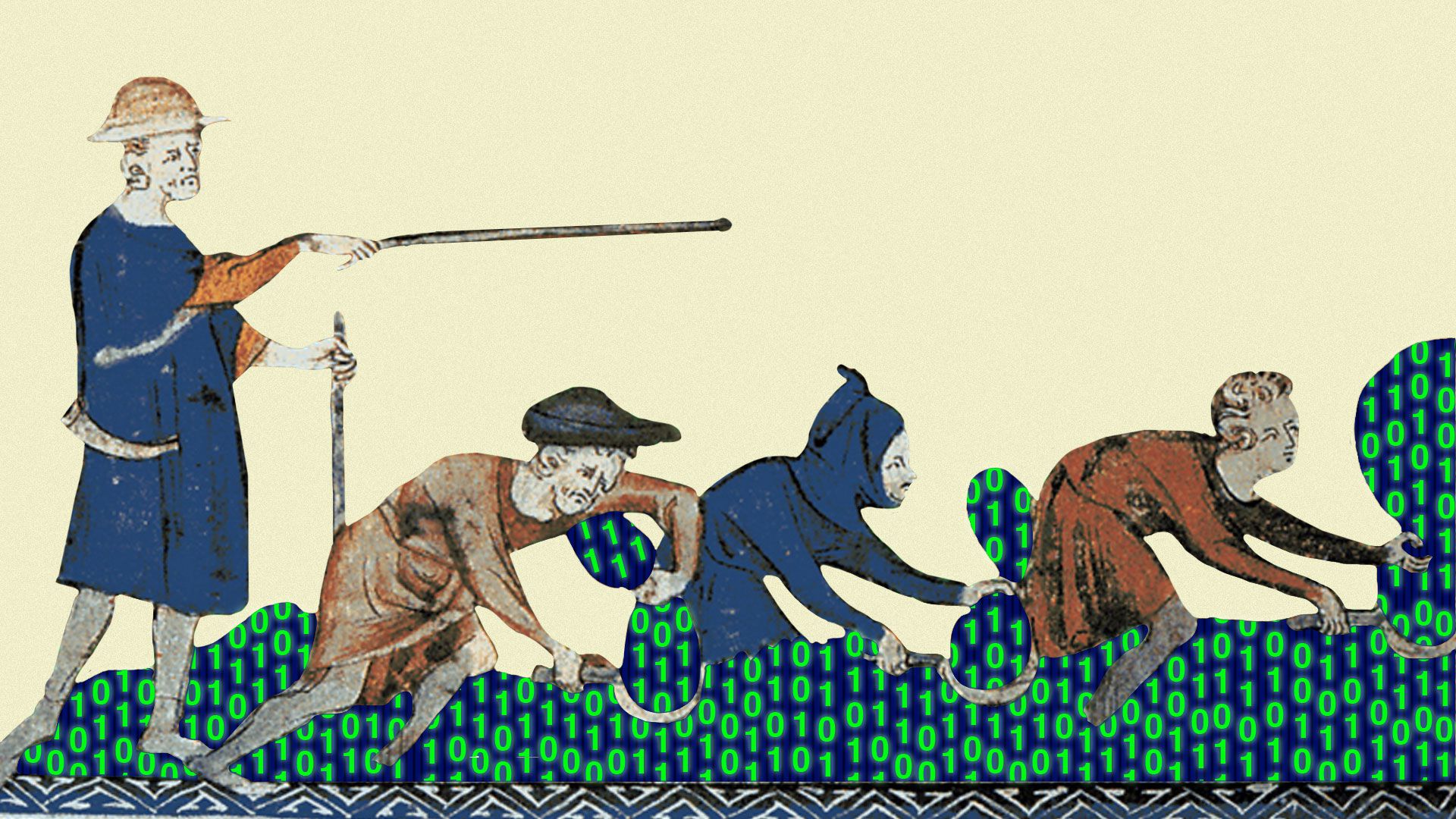Serfs in the era of artificial intelligence
- Transfer

Behind the back of the AI revolution, a lower class of workers has grown, invisible to most of us: thousands of low-paying people in the United States and around the world who carefully parse millions of pieces of data and images, helping to fill in powerful AI algorithms. Critics call them "new serfs."
Why it is important: these workers - people who mark up data so that computers can understand what they are looking at - began to attract the interest of social researchers and other experts. The latter say that these “scribblers” can at least partially explain the riddle of American income inequality - and perhaps how to solve it.
Context: We think AI is all-knowing, but it’s not entirely true. AI in self-driving machines, for example, based on sensors, can take fantastically detailed pictures of streets and recognize dangers of all kinds. AI can feed any driving situation, and it can handle it. But companies developing self-governing technologies need people to tell what the AI is looking at: trees, stoplights, or pedestrian crossings.
- Without human markup , AI is stupid and cannot distinguish a spider from a skyscraper.
- But this does not mean that companies pay good scribblers money. In fact, they are paid as the lowest paid workers.
- U.S. companies claim to pay $ 7 to $ 15 per hour for such workers. And, apparently, this is the upper limit of payment: such workers are attracted to crowdsourcing platforms. In Malaysia, for example, pay an average of $ 2.5 per hour
The view is broader: winners are AI companies, most of which are in the USA, Europe and China. Losers are workers from rich and relatively poor countries who are paid little.
How companies manage markup makers : Nathaniel Gates, director of Alegio, a Texas-based crowdsourcing platform, says his firm deliberately reduces work to the simplest, most routine tasks possible. And while this reduces the chances for workers to improve their skills - and get higher pay, Nathaniel Gates claims that at least they "open the doors that were previously closed to them."
- “ We are creating digital jobs that did not exist before. And the guys come to these places, whom automation has supplanted from farms and factories, ”Gates told Axios.
However, some experts say that such practices create inequality in the AI economy.
- In a new book , Phantom Work, Mary Gray and Siddharth Suri of Microsoft Research argue that markup workers are a prominent part of the most dynamic sectors of the economy.
- “ Economists have not yet figured out how to value this market,” says Gray Axios. “We assessed such work as durable goods (which benefit over time - ed.), But in reality it is a collective mind - that’s where the core value is.”
James Cham, partner with Bloomberg Beta venture capital fund, thinks AI companies are playing the difference between the low wages of scribblers and the huge, long-term profit from the products that come from this work.
- "Companies get long-term benefits, while workers are paid only once. They are paid as serfs, paying only a living wage. And landlords get all the profits because the system is so arranged," Cham told Axios.
- “This is one big spec”
What next: Gray says that the market itself cannot increase the salaries of workers marking up data.
- In an era when outdated political and economic rules do not work, and societies wear out, experts need to figure out what the earnings of such workers should be.
- What people are paid is “a matter of morality, not just economics,” concludes Gray.
Deepen: Markup will become the billionth market by 2023
Translation: Vyacheslav Perunovsky
Editing: Alexey Ivanov / ponchiknews
Community: @Ponchiknews
